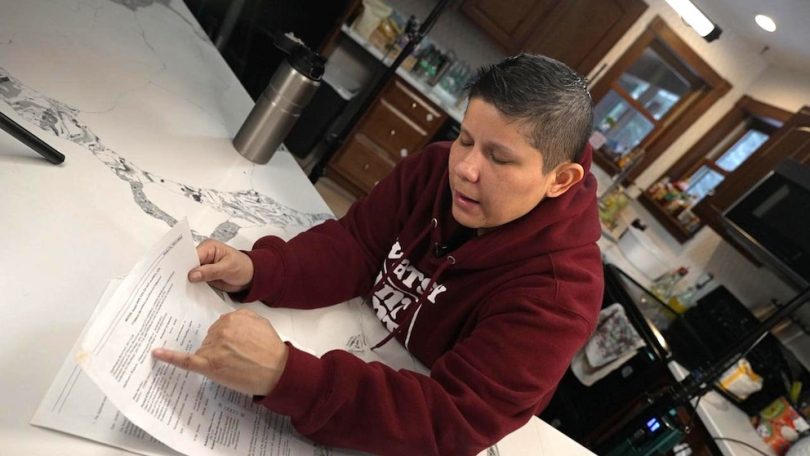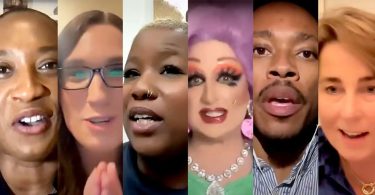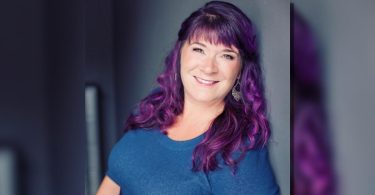HUBBARDSTON, Mass. — For former Navy sailor Annie Reyes, seeing the words on paper still stings: “Reason for discharge: homosexual conduct.”
“We were in Bahrain in the middle of the ocean, and they’re like, ‘This is the perfect time to kick someone out for being gay,'” Reyes, 40, said of her 2009 dismissal from the USS Bataan under the Don’t Ask, Don’t Tell policy.
“Even right now, I don’t qualify to get my full benefits because I didn’t get a chance to serve the four years,” said the former electrician’s mate and married mother of two in an interview. “There are so many people that this happened to that it’s ridiculous.”
More than a decade after Congress ended the military’s ban on gay service members, Reyes and thousands of other LGBTQ veterans like her are still fighting to restore their dignity — and obtain full access to veteran benefits like health care, home loans, and college tuition that were denied after less-than-honorable discharges.
An estimated 100,000 service members since World War II were kicked out of the military because of their sexual orientation, officials say, including more than 13,000 under the Don’t Ask, Don’t Tell policy between 1994 and 2011.
Some received honorable discharges — the military’s top designation for satisfactory service and a key to unlocking a full spectrum of veterans’ benefits — but many received a lesser designation, with the added stigma of their sexual orientation documented as the reason for removal.
“It was a really significant victory to have Don’t Ask, Don’t Tell finally repealed, but that wasn’t the end of the story. There’s so much work that needs to be done,” said Dana Montalto, an attorney and instructor at the Veterans Legal Clinic at Harvard Law School.
While many of the most valuable veterans’ benefits are administered by the federal government, states also extend financial and educational perks for military service. In both cases, benefits are dependent on a veteran’s official discharge status as recorded by the Pentagon.
“It is lifesaving for veterans to have access to some of these programs, especially those who have experienced harm during their service, and to deny them access to these benefits, that’s a huge problem and something that we really need to fix,” Montalto said.
Since 2012, service members who were kicked out have been able to apply to a military board for a chance to have official records upgraded to remove references to sexual orientation and qualify for more benefits.
But only one-in-four eligible veterans has done so, according to the Pentagon.
“The bottom line is the veteran has to know to ask for it, and they have to know how to file it, and it’s not simple,” said Christie Bhageloe, director of the Discharge Upgrade Program at The Veterans’ Consortium, a nonprofit group that provides pro bono legal services.
Earlier this year, the Biden administration announced that the military would for the first time begin proactively reviewing discharge records to identify and help those who were kicked out and have not come forward.
The Pentagon confirmed to ABC News that its new initiative is underway and that staff have begun identifying veterans eligible for review, but a spokesperson could not say how many personnel are involved with the outreach or when the process is expected to be completed.
“I don’t know why it is that it’s taken this long for DOD to take the affirmative step,” Montalto said. “The burden should be on [the military] to ask [the veteran] what they need and not to have it be on them to figure out how to navigate all these different processes.”
Several states in recent years have moved to take matters into their own hands and rectify what advocates have called a “historic injustice” to thousands of LGBTQ veterans who served.
“Here in Massachusetts we said, ‘No, that’s not right. We’re going to set up a board. We’re going to make sure that any veteran who served, who is discharged because they were gay, is going to be in line and receive state benefits,'” said Gov. Maura Healy, the state’s first woman and openly gay governor, in an interview.
“I appreciate what the Biden administration is doing, but we want to make sure though that we are moving quickly,” Healy said. “The stigma that came from that discriminatory law — Don’t Ask, Don’t Tell — is something that continues to live with our gay veterans to this day.”
In September, Healy announced the creation of a new Veterans Equality Review Board led by Army Reservist Dr. Jon Santiago.
“We have about 10- to 15,000 that could benefit from this,” Santiago said. “But the point is, we want to send a message to the veteran community that we hear you, that we see you, we want to work closely with you, and that if you were denied benefits, we are here to rectify that.”
But even in Massachusetts, the burden is still on the veteran to file a claim, and the effort alone cannot rectify a veteran’s official discharge status with the Pentagon.
“Why do we have to keep coming back and coming back for you to give justice to us?” asked Reyes. “You have our name. You know where we are.”
Reyes calls the new outreach a positive, if small step, toward making things right and says she has had success in her own pursuit of justice.
In 2009, with help from the Harvard Veterans Clinic, Reyes was able to upgrade her discharge records to “honorable” and remove a reference to her sexual orientation.
Tens of thousands of others are still waiting.
“I’m willing to risk my life. I’m sitting here, still standing, willing to risk my life for you. You’re wondering who I’m sleeping with? It’s the stupidest thing,” Reyes said. “I don’t need an apology. I need them to fix the things they broke.”







